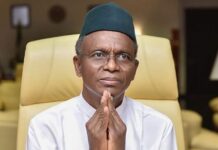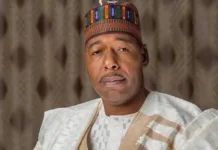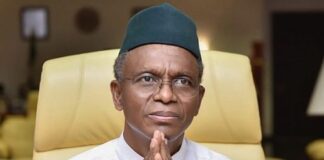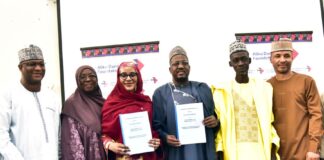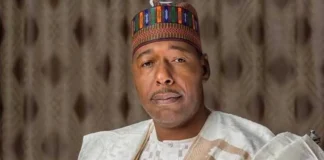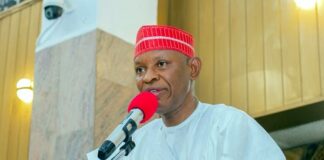By Omo-Oba Femi Fadina
President of the Association of Tourism Practitioners of Nigeria(ATPN)
“Africa does not need charity; Africa needs fairness.” — H.E. Amb Yusuf Tuggar
At the heart of Africa’s diplomatic engagements, Nigeria continues to push for economic sovereignty, equitable development, and structural reform. At the recently concluded African Union (AU) Ordinary Summit in Addis Ababa, we had the privilege of engaging Nigeria’s Minister of Foreign Affairs, H.E. Amb Yusuf Tuggar, as he articulated Nigeria’s stance on some of the continent’s most pressing economic and geopolitical issues.
His message was clear: Africa must assert its right to growth, demand debt relief, and push for energy and technology funding as global economic imperatives—not as favors.
The Economic Case: Why Special Growth Rights Matter
Africa is often described as a land of untapped potential, yet it remains economically constrained by outdated global financial policies. The International Monetary Fund (IMF) and World Bank—which dictate fiscal policies across emerging markets—continue to classify African economies under rigid conditions that fail to reflect the historical and structural challenges imposed by colonialism, resource extraction, and systemic debt cycles.
According to H.E. Amb Yusuf Tuggar, Nigeria is leading the charge in demanding Special Growth Rights (SGRs)—a concept that, if implemented, could unlock billions in concessional financing, reduce unfair debt obligations, and enable long-term sustainable development.
Debt Relief: A Necessary Reset for Economic Growth
“No nation can build a future while shackled by the debts of the past.” — H.E. Amb Yusuf Tuggar
Nigeria is not alone in calling for comprehensive debt relief for African nations. The numbers speak for themselves:
Africa’s total external debt stood at $824 billion in 2023, with over $100 billion paid annually in debt servicing.
Nigeria alone spends nearly 90% of its revenue on debt servicing, leaving little fiscal space for infrastructure, healthcare, or education.
China, the Paris Club, and private creditors hold significant portions of Africa’s debt, yet restructuring efforts remain slow and often conditional.
The message from the summit was simple: Africa cannot grow if it continues to borrow at exploitative interest rates while being denied the same fiscal flexibility that Western economies enjoyed in their development stages.
Nigeria is demanding structural reform at the IMF and a reclassification of African economies that reflects their unique historical burdens and current growth potential. The push for debt relief is not about escaping obligations—it is about recalibrating global finance to allow African nations to compete fairly in the 21st century.
Energy Transition & Technology Transfer: The Next Economic Battlefield
“You cannot ask Africa to transition without funding the transition.” — H.E. Amb Yusuf Tuggar
One of the most significant global conversations today is climate change and the transition to renewable energy. However, the reality for Africa is stark:
While Western nations industrialized using fossil fuels, Africa is being pressured to transition without the necessary financial and technological support.
Nigeria and other oil-producing nations stand at a crossroads—balancing economic reliance on oil with the need to invest in renewables.
The funding gap for Africa’s energy transition is estimated at over $1 trillion, yet actual commitments remain a fraction of this amount.
Ambassador Tuggar made it clear: Africa will transition on its terms, and that transition must be funded by those who have historically benefited from the continent’s resources.
Moreover, technology transfer—the process by which developed nations share critical technological advancements with developing economies—remains a major stumbling block in Africa’s digital and industrial revolution. Nigeria is calling for policy frameworks that mandate open-source technology partnerships, allowing African nations to leapfrog outdated industrial models and fully embrace the digital economy.
Historical Reflection: The Unfinished Work of Economic Liberation
“Slavery ended. Colonialism ended. But the economic structures that enabled them remain.” — H.E. Amb Yusuf Tuggar
Ambassador Tuggar’s reflections on history were profound. While slavery and colonialism are often discussed in past tense, their economic and systemic effects remain visible today:
Africa’s role in the global supply chain is still disproportionately as a raw material supplier, not a value-added producer.
Financial dependency on Bretton Woods institutions (IMF & World Bank) keeps African economies in a cycle of perpetual adjustment programs.
The continent remains the least industrialized region globally, despite holding 30% of global mineral reserves.
Nigeria’s stance at the AU Summit was not just about economic demands but about correcting historical imbalances that have shaped Africa’s economic fate for centuries.
The Road Ahead: A New Diplomatic & Economic Era for Nigeria
Nigeria is not just asking for change but positioning itself as the leader of Africa’s economic transformation. The country is leveraging its diaspora, trade policies, and diplomatic strength to shift global conversations.
But to make these visions a reality, African governments must:
 Strengthen intra-African trade through the African Continental Free Trade Area (AfCFTA).
Strengthen intra-African trade through the African Continental Free Trade Area (AfCFTA).
 Push for financial self-sufficiency by expanding local capital markets.
Push for financial self-sufficiency by expanding local capital markets.
 Engage the private sector in driving large-scale infrastructure projects.
Engage the private sector in driving large-scale infrastructure projects.
 Champion policies that protect African economies from exploitative foreign agreements.
Champion policies that protect African economies from exploitative foreign agreements.
The message from Nigeria at the AU Summit was bold, urgent, and necessary: Africa must no longer be a passive participant in global finance. It must demand fairness, reform, and economic sovereignty.
The world is watching. The time is now.
Stay tuned for more exclusive updates—like, share, and follow us for in-depth analyses of Africa’s diplomatic and economic evolution.


